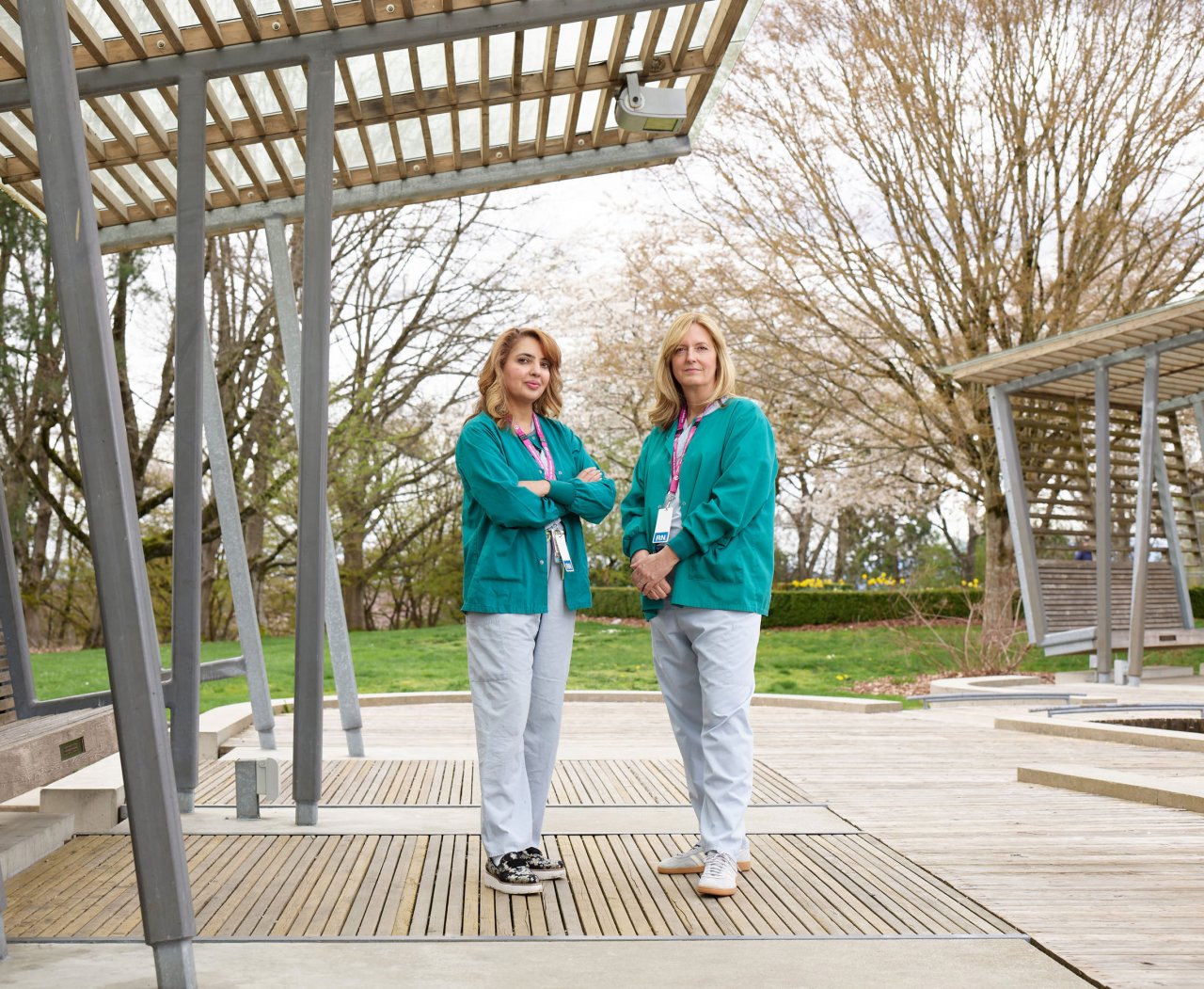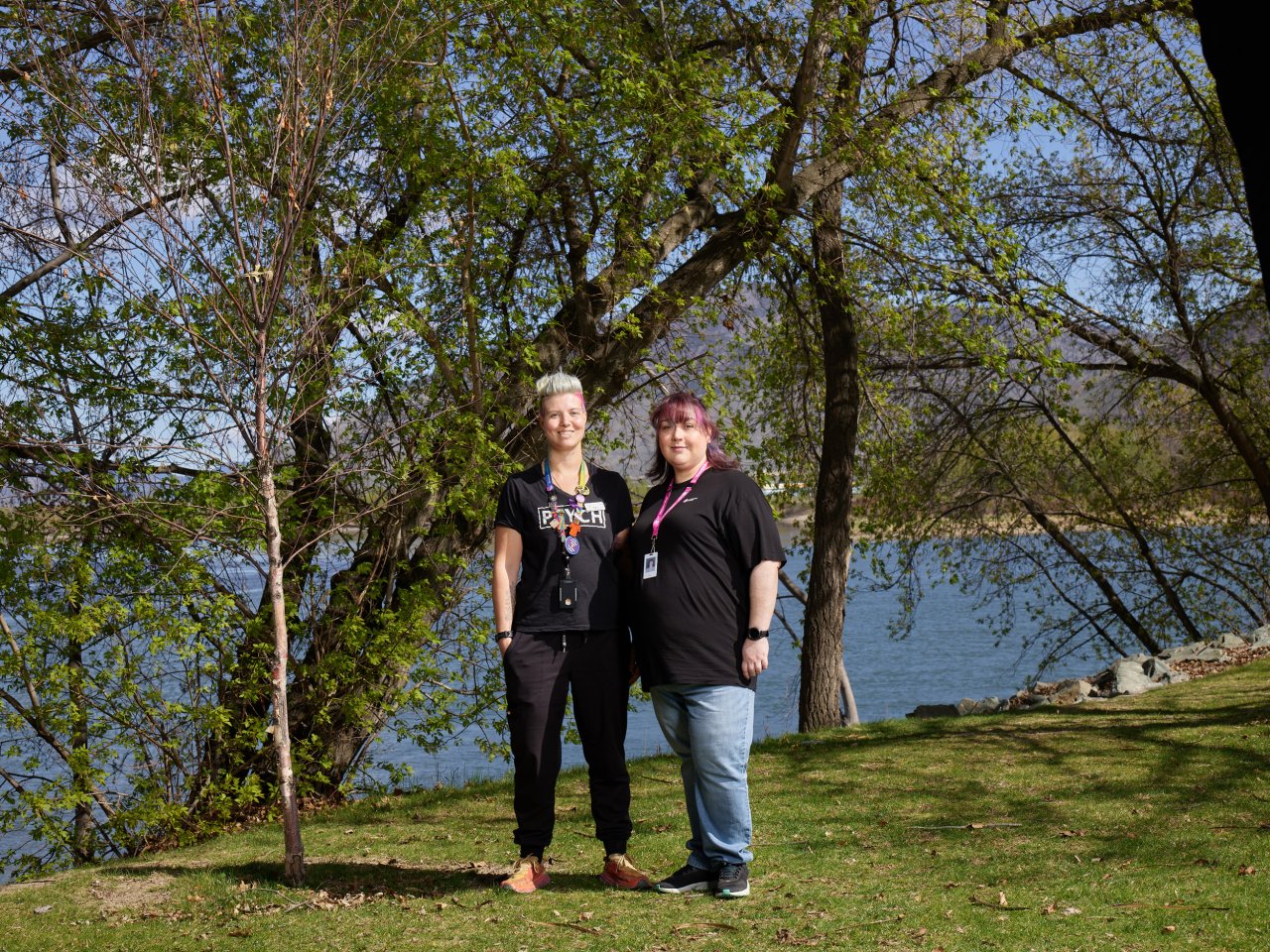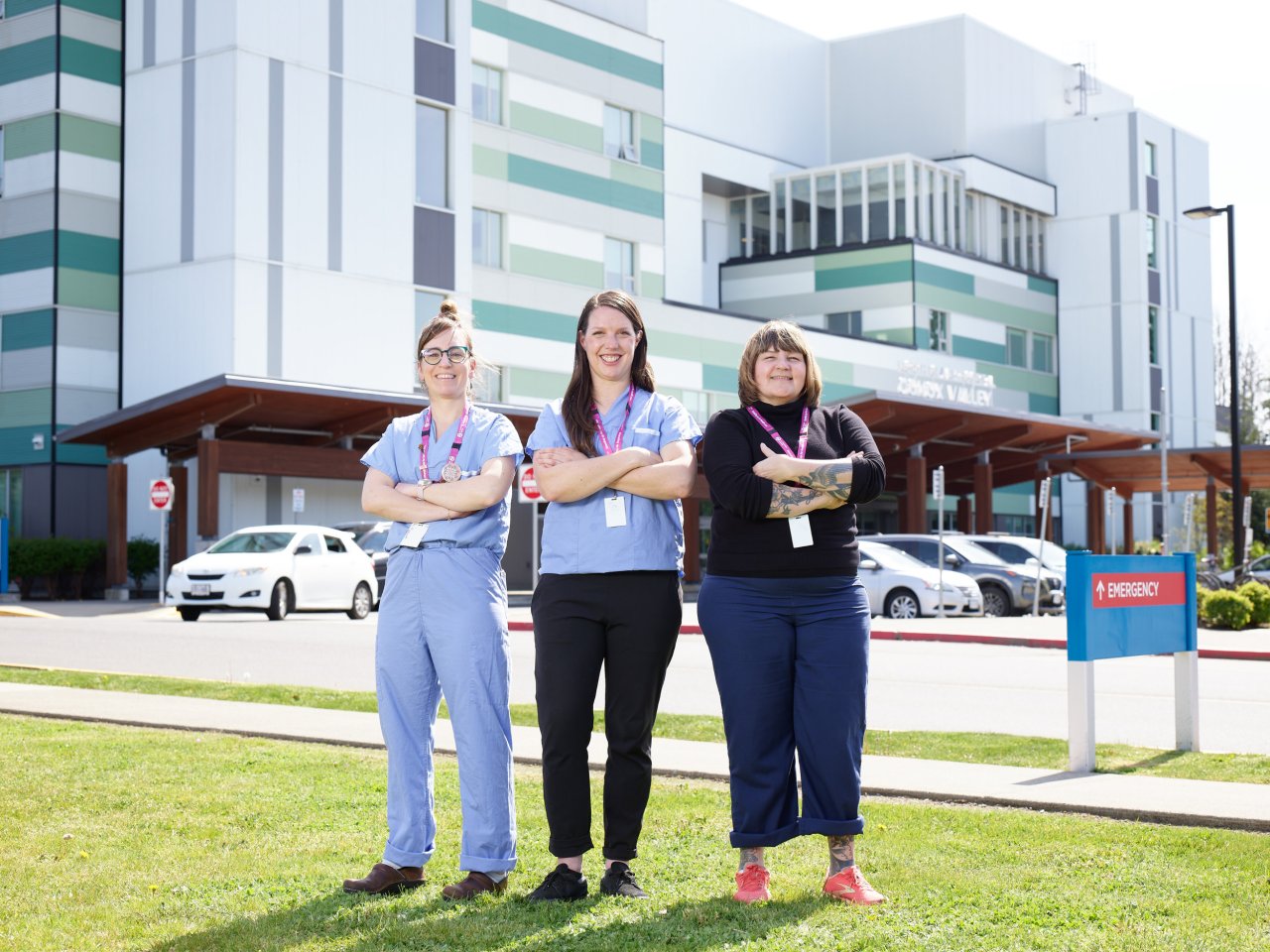BCNU MEMBERS ARE BOLD
Sparking a Culture Shift at BC Women’s Hospital
At BC Women’s Hospital, a quiet but powerful transformation has been taking place – one led by BCNU members determined to make their workplace safer for everyone.
Raj Johal, an outspoken BCNU occupational health and safety (OHS) representative and Lisa Hennebery, a dedicated steward and BCNU mental health representative, have been hard at work addressing health and safety issues at their worksite. Their work has led to significant safety improvements and sparked a renewed culture of holding the employer accountable.
For over 20 years, Johal has provided specialized support to patients who are pregnant or newly parenting while navigating substance use and mental health concerns in the Families in Recovery (FIR) unit at BC Women’s and Children’s Hospital. Over the years, she’s seen a gradual escalation of safety issues – including exposure to violence, weapons, and substances – that have left many staff traumatized.
“We were seeing the employer ignore or downplay safety issues for too long and knew something had to change,” says Johal. “Lisa and I make a great team that tackles logistics at the worksite level and promotes psychologically healthy work environments.”
I realized things needed to change – and we began educating nurses about the importance of reporting health and safety incidents."
— Lisa Hennebery
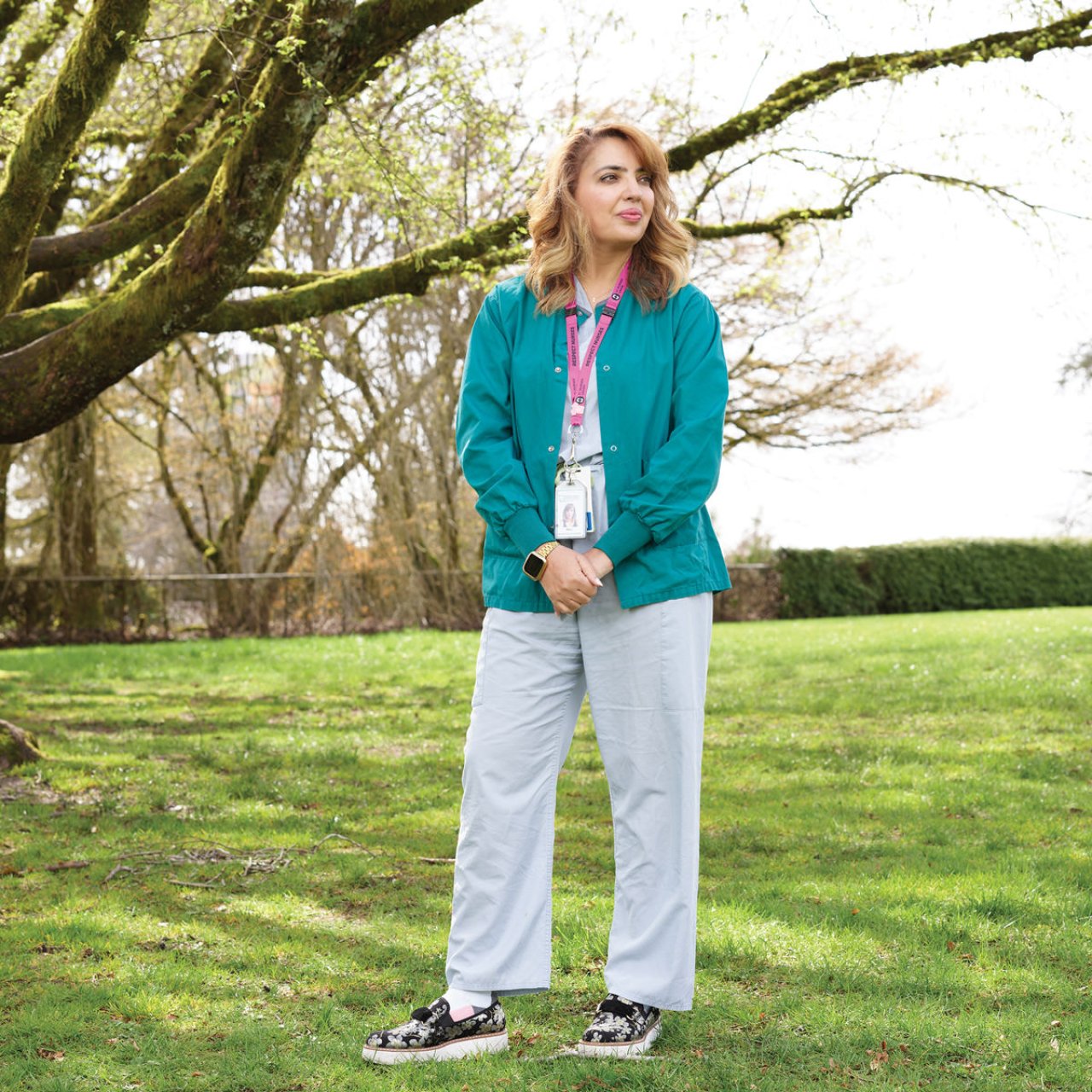
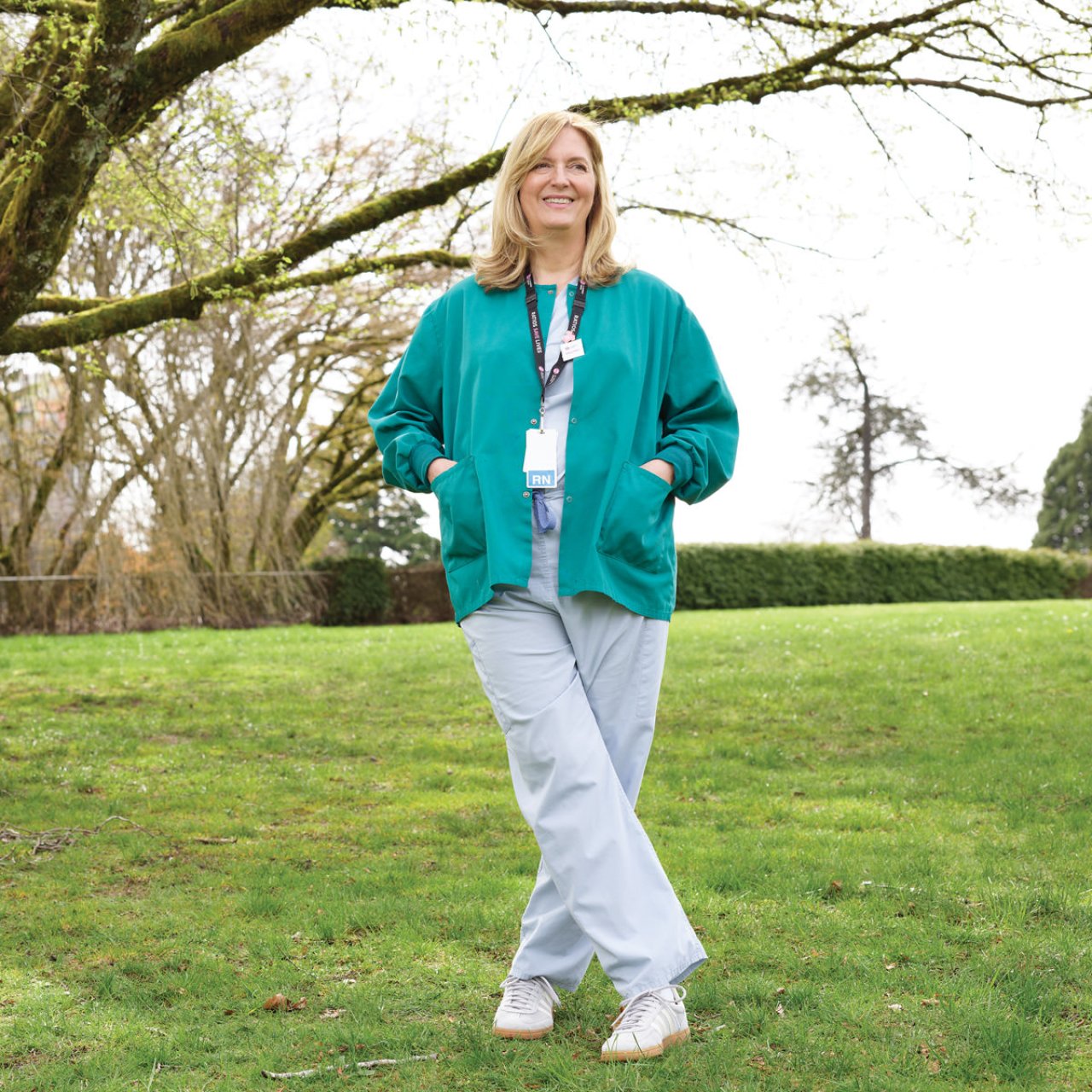
Hennebery has spent years as a critical care nurse and working in high-risk antepartum care at BC Women’s. She says she put on her activist hat when she saw how often the employer ignored nurses’ concerns and brushed their safety aside.
“There were staffing issues and daily assaults, from biting, kicking and being yelled at to more serious offences,” she explains. “But staff didn’t speak up. Many said they were worried about getting in trouble. When I was elected as mental health rep in 2024, I realized right away that things needed to change. I made it my goal to educate nurses and empower them to report health and safety incidents every time they occurred.”
One of their most hard-fought battles has been to demand that their employer redevelop the nurses’ station in the mental health building, specifically the eating disorder unit. For years, this space left nurses exposed and vulnerable to aggressive behaviour. In this open space, distressed and unwell patients could easily sneak up on nurses or throw things at them while they focused on charting. After raising the issue in Joint Occupational Health and Safety (JOHS) committee meetings, documenting incidents and rallying their co-workers to speak up, their advocacy finally paid off. The employer agreed to a complete redesign of the station, including the installation of plexiglass barriers that reach the ceiling.
The health authority’s recent commitment to complete the new station by October marks a major milestone. “It’s a huge win,” says Hennebery. “I wasn’t afraid to stand up to the employer. Initially, the employer had agreed to put up plexiglass, but the work had stalled. We pushed for a fully enclosed station to protect staff, and in November, the employer agreed,” she adds. “This only happened because nurses started reporting. It shows what can happen when you speak up for your safety.”
Getting to this point wasn’t easy, according to Johal. For years, staff weren’t reporting health and safety incidents – a trend that made it harder for Johal and Hennebery to present a strong case to the employer. “We’d go into meetings and be told there wasn’t any data to support what we were saying,” she says. “But that was because people had stopped bothering to report. They were exhausted after a shift and didn’t see the point. They almost felt like what they were dealing with was normal – and we know it’s not.”
The pair tackled the reporting issue head-on, encouraging members to start reporting every incident, no matter how small. Through one-on-one conversations, steward meetings and JOHS updates, they gradually rebuilt a culture where workers felt it was worth speaking up again. The number of reports began to rise, and with them, the employer could no longer deny that something needed to change.
In addition to structural changes, the team has also focused on preparedness, holding mock code drills with relational security officers, who are a relatively new addition to their team. The drills allowed staff to walk through ‘Code White’ scenarios – the alert for threats of violence and aggression – in a controlled setting, refining their roles and identifying gaps before a real incident occurred. When a real Code White happened shortly after these drills, they resulted in a smoother, more efficient process and less stress for everyone involved.
People had stopped bothering to report. They almost felt like what they were dealing with was normal – and we know it’s not."
— Raj Johal
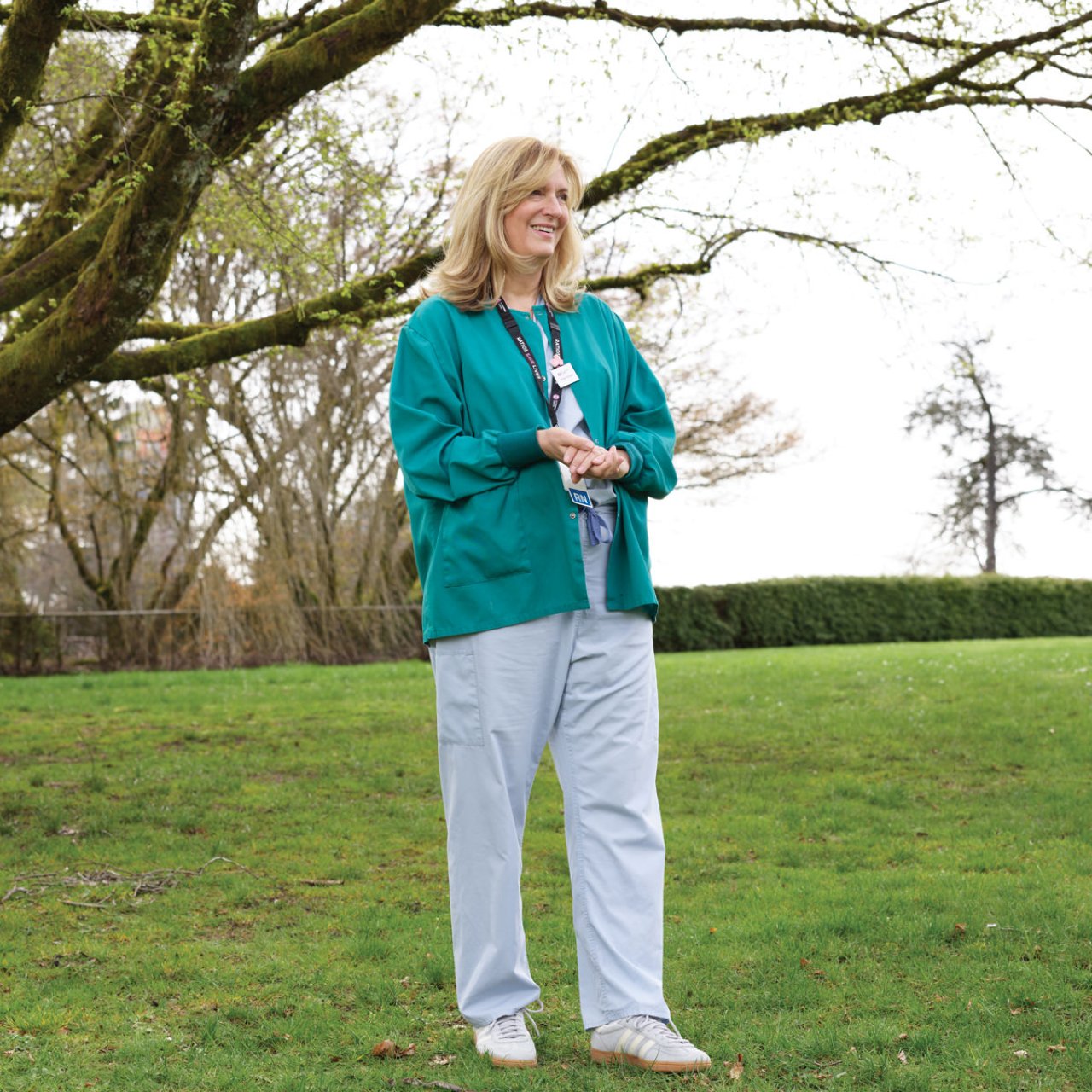
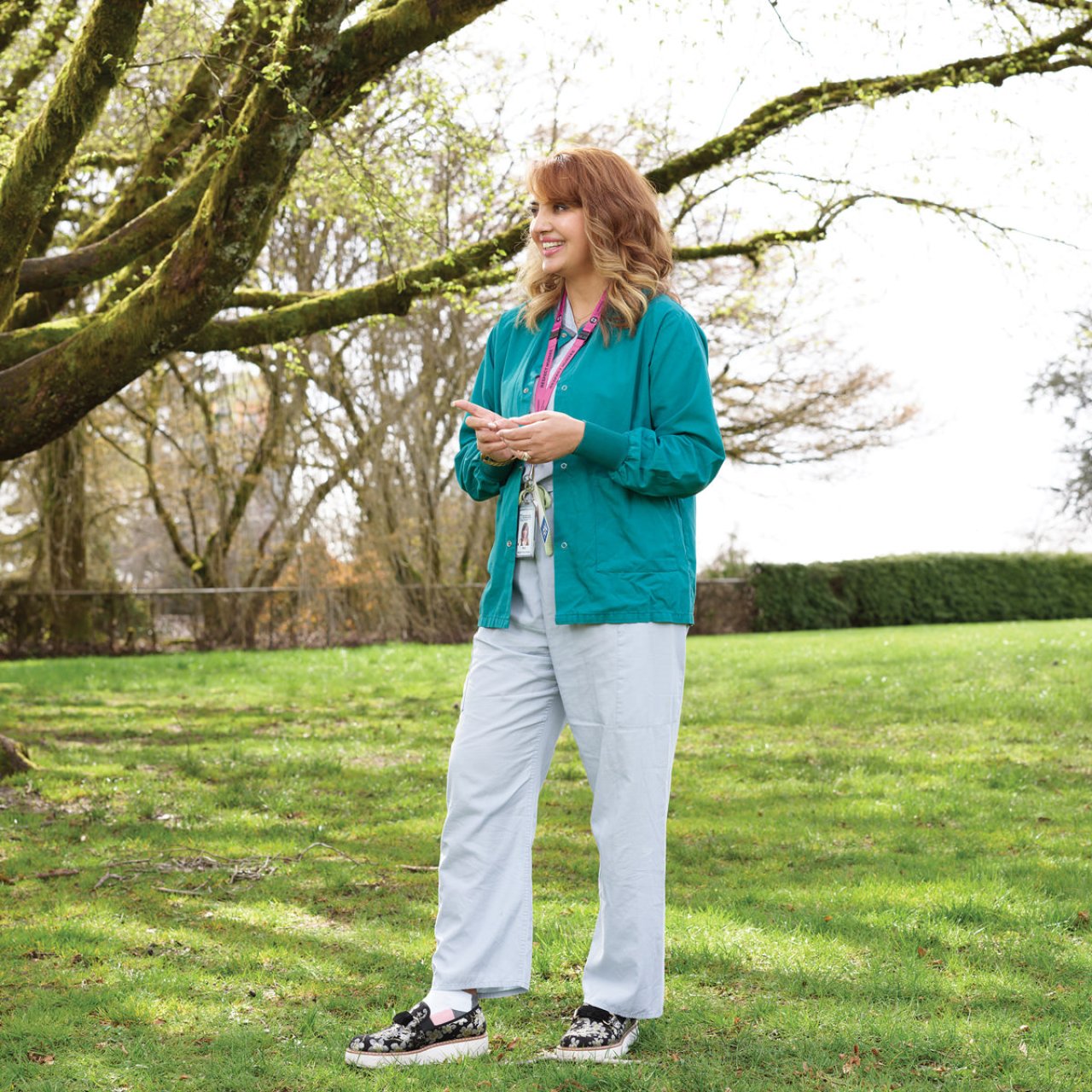
“Giving delegated roles to everyone made such a difference,” says Johal. “We all knew exactly what to do. It was the first time we’d run a code where I felt the whole team was completely in sync and they felt at ease.”
Both members hope this proactive approach catches on at other sites. “It doesn’t take a lot of resources to run a drill, but the impact is huge,” says Hennebery. “It’s one of these things where as nurses, we train for the worst and hope for the best.”
Hennebery and Johal’s advocacy exemplifies what member-driven health and safety work can accomplish. Their story is a reminder that meaningful change often starts with a few people willing to ask tough questions, challenge the status quo and support each other along the way.
There’s also another major motivator that brought the two activists together: they are both determined to make working conditions better for the next generation of nurses – including their daughters. Johal’s daughter works in the FIR unit with her mom, and Hennebery’s daughter is completing her nursing degree.
“Before I retire, I want to know that the next generation of nurses is safe and in good hands,” says Hennebery. “I want my daughter to be empowered, and I’d like to know that things are better than they were before.”

